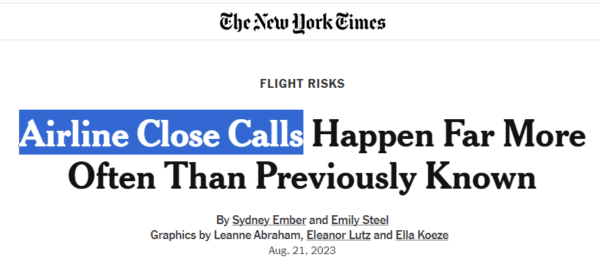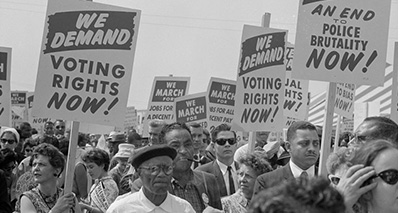◄►◄❌►▲ ▼▲▼ • B下一个新评论下一个新回复了解更多
It never stops. On the lobotomy box I once again saw blacks agitating about the Confederate flag. They want it removed, the announcer said, from the official paraphernalia of yet another Southern state. Cleanse those license-plate holders. Purify the evil that lurks in South Carolina. Abolish if possible an entire culture, erase its history, wash away its distinctiveness.
Then, with the predictability of gravitation, the station trotted out a professional black to intone, spare me, that the legacy of slavery required that the flag be discarded.
为什么?
Sez me, blacks are citizens as much as anyone else, and entitled to the same privileges, protections, and courtesies as anyone else. That’s all they are entitled to. It’s all anyone is entitled to. I could get tired of this slavery routine as a justification for anything blacks want. Being a Southern kid, who likes the South, its language, music, manners, and pace, I could get real tired of it.
I suspect I’ll get the chance. By all indications, a hundred or a thousand years from now blacks will still be attributing all their problems to slavery. The first rule of American politics has become that everything is someone else’s fault.
What are the constant demands by blacks going to do for race relations down the road?
Nothing good. And the last thing this country needs is more racial animosity.
For nigh on fifty years we’ve been teaching blacks that the way to get anything is to holler about slavery and demand whatever it is. Everybody else has had to work for things. They still do. Indians show up from Bombay and work as programmers, Pakistanis run the Seven-Elevens, the Vietnamese go into the restaurant trade or computational fluid dynamics, Hispanics become construction workers. Blacks by contrast appear to have become a permanent welfare class.
Is this good for anybody? And how did we get here?
Of course what happened was that, after apartheid legally died in the mid-Fifties, all sorts of people figured that blacks needed a social jump-start. It wasn’t an unreasonable idea. Further, a lot of people felt guilty about the circumstances in which blacks lived, which were in fact dismal. That sense of guilt too wasn’t entirely unreasonable: If whites weren’t exactly responsible for an ugly situation, they had at least tolerated it.
Then, when blacks didn’t move up the educational ladder, people decided to try a new form of welfare called affirmative action. This lowering of standards for blacks–which is what it was–also was done with the best of intentions. Step by step it went, things being awarded that should have been earned. At the time, nothing else seemed possible. Maybe in fact nothing else was possible.
The result was, however, to teach blacks that all good things come from white people, not from disciplined effort. There came welfare, food stamps, Section Eight housing, and so on, without which today the cities would go up in flames. Then affirmative action, very much a form of welfare, took hold throughout the professions. Blacks now rely on these programs to an extent new to the country.
The reliance may prove dangerous. The position of blacks in America looks to me to be a tottery edifice indeed. Yes, with the economy going well, welfare flows, and yes, with political correctness firmly reigning, nobody can criticize, and yes, with affirmative action, blacks get hired where otherwise they wouldn’t be. But?this is precisely the problem. What would happen if anything went wrong? What if there was a serious economic downturn?
Among blacks, there is the powerful sense of entitlement, as well as a hatred of whites. Among whites, a generation has grown up which was born after the movement for civil rights. For them the force of demands for special privilege, based on increasingly remote evils committed by others, diminishes. I recently heard a girl of perhaps fourteen, who had been castigated by black students in her school as a white and therefore guilty of slavery, say firmly to a friend, “I’m sorry, but I wasn’t there, and I didn’t do it.”
What worries me is that the sense of entitlement, the dependence on demanding and on special privilege instead of performance, seem to be increasing instead of dying away. Affirmative action is rampant on campus, in the government, in the military. EEO charges are now a regular way of avoiding complaints about poor performance. In the universities, departments of Afro-American Studies have become entrenched absurdities.
In the short run, nothing is likely to change. The iron grip of political correctness perpetuates the reliance on entitlement. As everyone in almost any office knows, any mention of what is going on will result in getting fired. It is also true that everyone does know what is going on. Here we have the curious two-tier system that has come to prevail in America: What we say publicly, we don’t believe, and what we believe, we don’t say publicly. The Soviet Union ran on this principle.
But: Should the grip of censorship fail, should patience with perpetual entitlement fail, we are going to have big trouble. The anger of whites is not as intense as that of blacks, or as universal, but there’s a lot of it. Not good.
Thing is, we’re caught in a Bifurcated Gotcha: On one hand, blacks desperately need to catch up academically and learn to compete with everyone else. On the other hand, as long as we have the system of special privilege, they have little incentive to catch up. If you figure that one out, call. We’ll get a patent.
Meanwhile the demands to abolish the Confederate flag, to rename everything named for a Confederate general, or for that matter demands for reparations or elimination of the Declaration of Independence–these are sheer provocation, intended as such. They fan a smoldering resentment among whites that in the long run isn’t going to help anyone. If this suppressed anger ever breaks into the open, there’s going to be hell to pay.
Maybe we ought to think carefully about it.


 RSS
RSS







